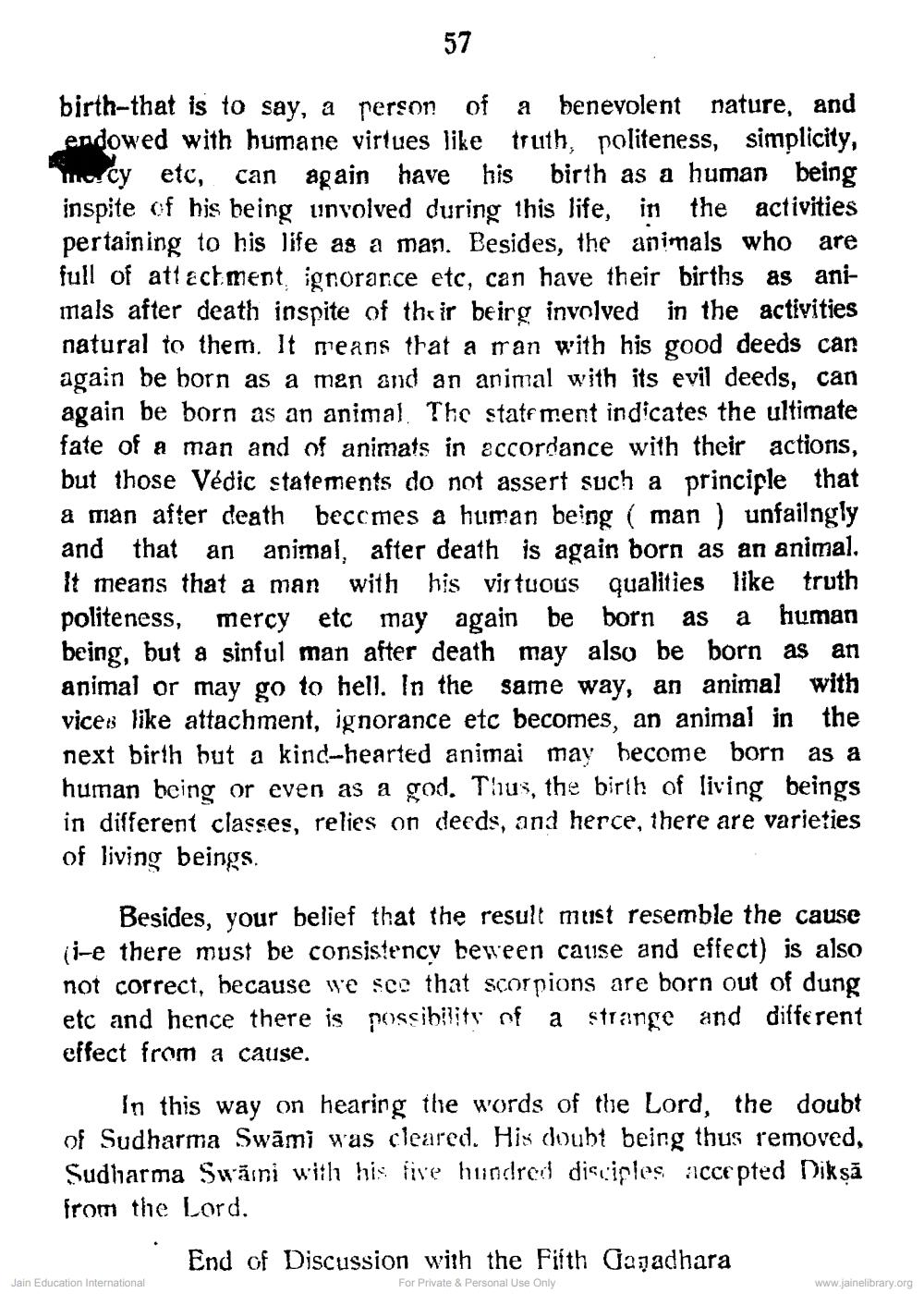________________
57
birth-that is to say, a person of a benevolent nature, and endowed with humane virtues like truth, politeness, simplicity,
cy etc, can again have his birth as a human being inspite of his being unvolved during this life, in the activities pertaining to his life as a man. Besides, the animals who are full of attachment ignorance etc, can have their births as animals after death inspite of their beirg involved in the activities natural to them. It means that a man with his good deeds can again be born as a men and an animal with its evil deeds, can again be born as an animal. The statement indicates the ultimate fate of a man and of animats in accordance with their actions, but those Vedic statements do not assert such a principle that å man after death beccmes a human being ( man ) unfailngly and that an animal, after death is again born as an animal. it means that a man with his vis tuous qualities like truth politeness, mercy etc may again be born as a human being, but a sinful man after death may also be born as an animal or may go to hell. In the same way, an animal with vices like attachment, ignorance etc becomes, an animal in the next birth but a kind-hearted animai may become born as a human being or even as a god. Thus, the birth of living beings in different classes, relies on deeds, and herce, there are varieties of living beings.
Besides, your belief that the result must resemble the cause (i-e there must be consistency beween cause and effect) is also not correct, because we see that scorpions are born out of dung etc and hence there is possibility of a strange and different effect from a cause.
In this way on hearing the words of the Lord, the doubt of Sudharma Swāmi was cleared. His doubt being thus removed, Sudharma Swăini with his five hundrej disciples accepted Diksā from the Lord.
End of Discussion with the Fifth Ganadhara
Jain Education International
For Private & Personal Use Only
www.jainelibrary.org




